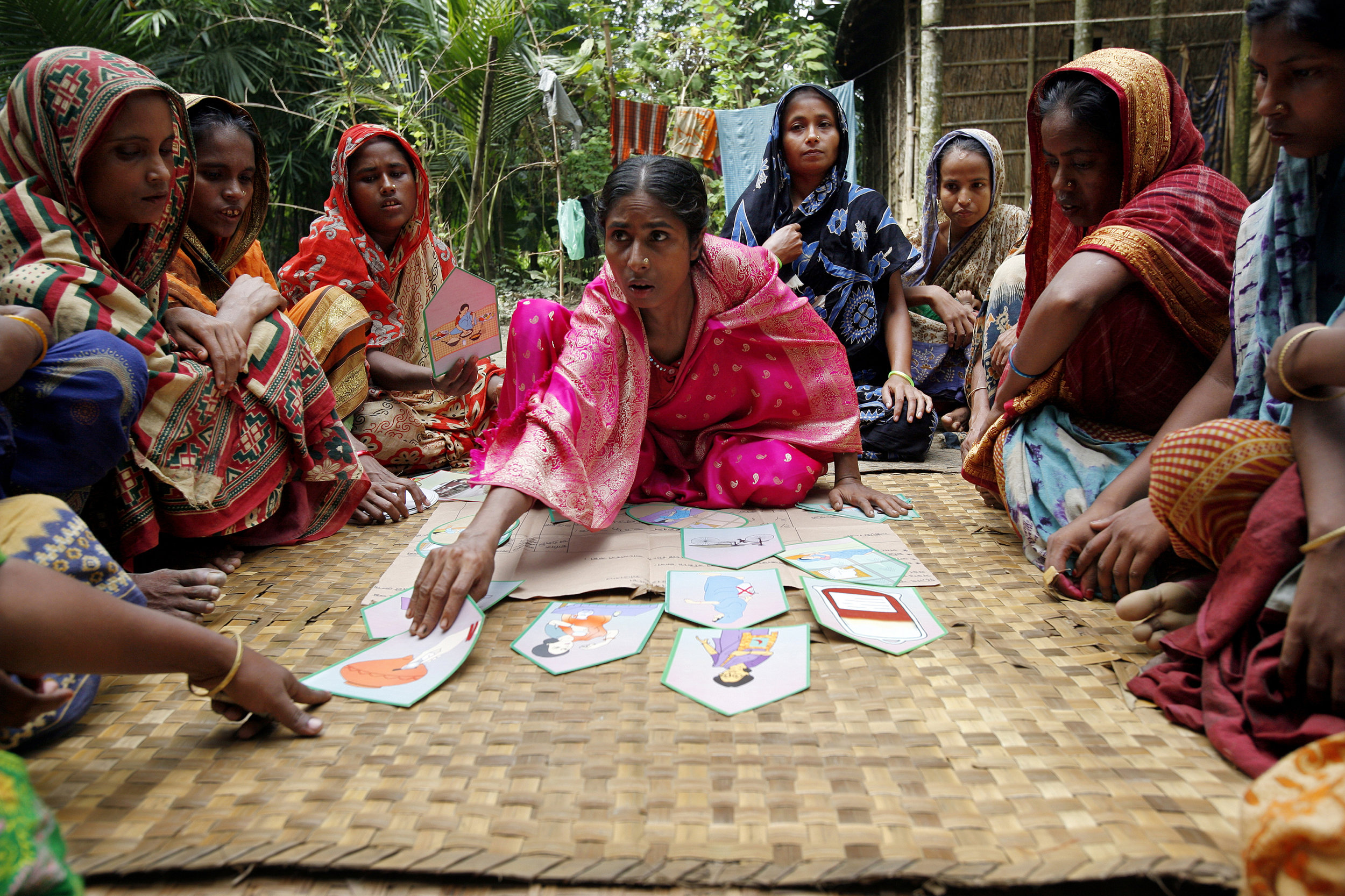Answers
Local communities have the answers.
They can come up with life-saving ideas like home-made emergency stretchers, sourcing and distributing mosquito nets and cleaning water sources.
But too often they are told what to do, treated as the problem or ignored.
Not by us.
Local communities taking the lead
Since we were established in 2001 we have stood in awe as local communities have come up with simple answers to some of the biggest global problems facing women, children and young people.
Shalpa Community
Bangladesh
"The women’s health group created an emergency crisis fund to help those in poverty. It pays for drugs, medicines and tests during childbirth."
Kalonga Community
Malawi
"It’s a long way from the village to the health facility... we had a lot of stillbirths. We lobbied for a bicycle ambulance to take us there, and were successful."
Sisin Community
Nicaragua
"The groups really came together to solve the problem of malaria, diarrhoea and pneumonia. They also pressured local health authorities for staff."
Women and Children First supporting local communities
We are different from other organisations. We don't have the answers, we don't lecture and we don't provide short-term fixes. We want communities to lead. We know how to support them behind the scenes to come up with their own answers.
So that's what we do.
Participatory Learning and Action (PLA)
Women and Children First uses the PLA methodology to support communities. PLA is an effective, low-cost, equitable and sustainable methodology that supports communities to come up with local answers to address the problems facing women, children and young people.
Maternal and Newborn survival tool
Based on the PLA methodology, we have used this tool to support communities to come up with local answers to improve the health and survival of mothers and newborns.
It has been rigorously evaluated, found to reduce maternal mortality by 49% and newborn mortality by 33%, is recommended by the WHO and is ready for scale up.
Prevention of mother-to-child transmission of HIV tool
Based on the PLA methodology, we have used this tool to support communities to come up with local answers that help to prevent mother-to-child transmission of HIV.
It has been tested, found to increase adherence to HIV prevention practices in pregnancy, delivery and after birth. It is ready for pressure-testing at scale.
Family planning tool
Based on the PLA methodology, we have used this tool to support communities to come up with local answers to support women and girls who want to plan their families.
It has been tested, found to increase knowledge, change attitudes, reduces barriers and improves uptake of modern family-planning methods. It is ready for pressure-testing at scale.
Woman, child and adolescent health and development tool
Based on the PLA methodology, we have used this tool to support communities to come up with local answers to improve the health and development of women, children and young girls across the life course.
The tool has been designed and is undergoing preliminary testing in Uganda. It is ready for pilot testing.
New tools to support communities
We are constantly innovating and exploring new ideas. New PLA tools to support communities to successfully solve the range of problems facing women, children and young people. New ways to ensure the PLA tools can support the most communities possible. New places where the PLA tools can be successfully implemented.
Working with partners
Women and Children First has one office - in London. So, to support communities we form long-term partnerships with local organisations, who are much better placed to deliver projects on the ground successfully, efficiently and appropriately. Working with partners in this way means that after we leave, these partners can continue the work.
We support communities to find their answers through two types of partnership:
Grant management - We build strong, long-term partnerships with leading local NGOs. We manage grants to and build capacity of these NGOs. We are experienced in managing grants from a range of institutional donors and trust and foundations.
Technical assistance - Our services are tailored and delivered to build the capacity of partner organisations in the design, implementation, management and evaluation of the community support tools.
We are experienced in providing technical assistance to partners seeking to successfully support communities to tackle global problems. We offer a high quality package of assistance – short-term or long-term – which can be delivered as a sub-grantee and consultant.
We are small, creative, efficient and highly experienced. We don't have any offices or people in the countries where we work. We collaborate with fantastic local organisations, staffed with people from those countries, because they are best placed to implement these projects on the ground. These collaborations, with both partners bringing their strengths, makes our projects successful, cost-effective and sustainable.
Results
For over 20 years we have supported thousands of communities, in several countries, to save almost 6,500 lives - and counting.
© Women & Children First (UK)
Registered Charity No. 1085096
Registered Office: Women and Children First, 483 Green Lanes, London, N13 4BS
Telephone: +44 (0)20 7700 6309 | E-mail: info@womenandchildrenfirst.org.uk
Website Terms and Conditions | Privacy Policy | Fundraising Promise
Stay close to us: Subscribe to our newsletter









